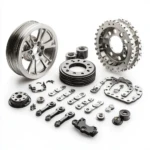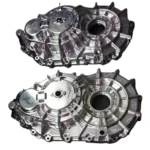The Evolution of Precision Machining: Unlocking the Potential of Composite Machine Tools
In the realm of modern manufacturing, the pursuit of precision and efficiency has become a relentless drive. With the increasing demand for complex components and high-precision parts, the industry has witnessed a significant shift towards innovative solutions that can cater to these evolving needs. One such groundbreaking development is the emergence of composite machine tools, which have revolutionized the field of precision machining by combining multiple treatment methods on a single platform. In this blog post, we will delve into the world of composite machine tools, exploring their benefits, applications, and the transformative impact they have on the manufacturing landscape.
The Concept of Composite Machine Tools
Composite machine tools are designed to integrate multiple machining functions, such as turning, milling, drilling, and grinding, into a single machine. This innovative approach enables manufacturers to perform various operations on a single workpiece, eliminating the need for multiple machine setups and reducing the number of tool changes. By combining these capabilities, composite machine tools have become an indispensable asset for industries that require high-precision parts, such as aerospace, automotive, and mold manufacturing.
Advantages of Composite Machine Tools
The benefits of composite machine tools are multifaceted and far-reaching. Some of the most significant advantages include:
- Reduced Setup Time: By performing multiple operations on a single machine, manufacturers can significantly reduce setup time, minimize errors, and increase overall productivity.
- Improved Precision: Composite machine tools enable manufacturers to maintain high precision and accuracy by minimizing the number of tool changes and reducing the accumulation of errors.
- Enhanced Efficiency: With the ability to perform multiple operations in a single setup, composite machine tools can substantially shorten production cycles, making them ideal for high-volume manufacturing.
- Cost Savings: By consolidating multiple machining functions into a single machine, manufacturers can reduce the need for multiple machines, resulting in significant cost savings on equipment, maintenance, and operating expenses.
Applications of Composite Machine Tools
Composite machine tools have found widespread adoption in various industries, including:
- Aerospace: The production of complex aircraft components, such as engine parts and landing gear, requires high-precision machining. Composite machine tools are ideal for these applications, enabling manufacturers to produce parts with exceptional accuracy and reliability.
- Automotive: The automotive industry relies heavily on high-precision parts, such as engine components, transmission parts, and precision moldings. Composite machine tools are well-suited for these applications, providing manufacturers with the ability to produce complex parts with high accuracy and efficiency.
- Mold Manufacturing: The production of molds and dies requires high-precision machining to ensure accurate and reliable performance. Composite machine tools are designed to meet these demands, enabling manufacturers to produce molds and dies with exceptional precision and quality.
The Future of Precision Machining
As the manufacturing landscape continues to evolve, the demand for high-precision parts and complex components will only continue to grow. Composite machine tools are poised to play a pivotal role in meeting these demands, providing manufacturers with the ability to produce parts with exceptional accuracy, efficiency, and reliability. With ongoing advancements in technology and innovation, the potential applications of composite machine tools will only continue to expand, driving the future of precision machining and shaping the manufacturing industry for years to come.
Conclusion
In conclusion, composite machine tools have revolutionized the field of precision machining, offering manufacturers a powerful solution for producing complex parts with high accuracy and efficiency. By combining multiple machining functions on a single platform, these innovative tools have become an indispensable asset for industries that require high-precision parts. As the manufacturing landscape continues to evolve, the importance of composite machine tools will only continue to grow, driving the future of precision machining and shaping the industry for years to come.
With their unparalleled capabilities and benefits, composite machine tools are set to play a pivotal role in the future of manufacturing, enabling companies to produce complex parts with exceptional precision, efficiency, and reliability. As technology continues to advance and innovation drives the industry forward, the potential applications of composite machine tools will only continue to expand, transforming the manufacturing landscape and unlocking new possibilities for precision machining.
















